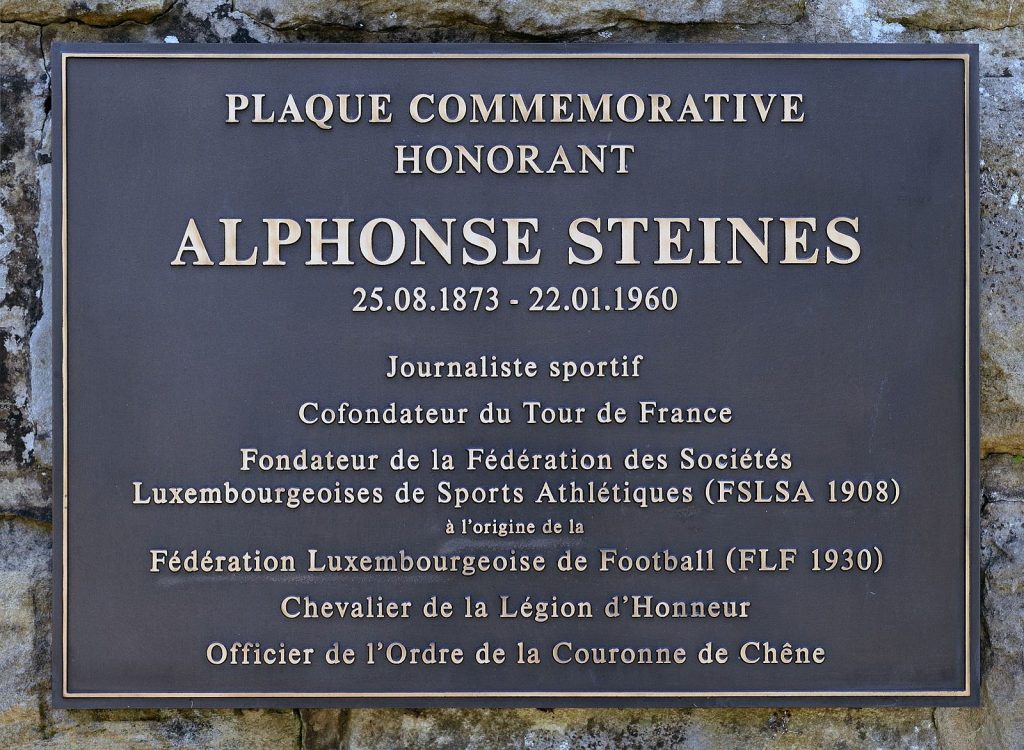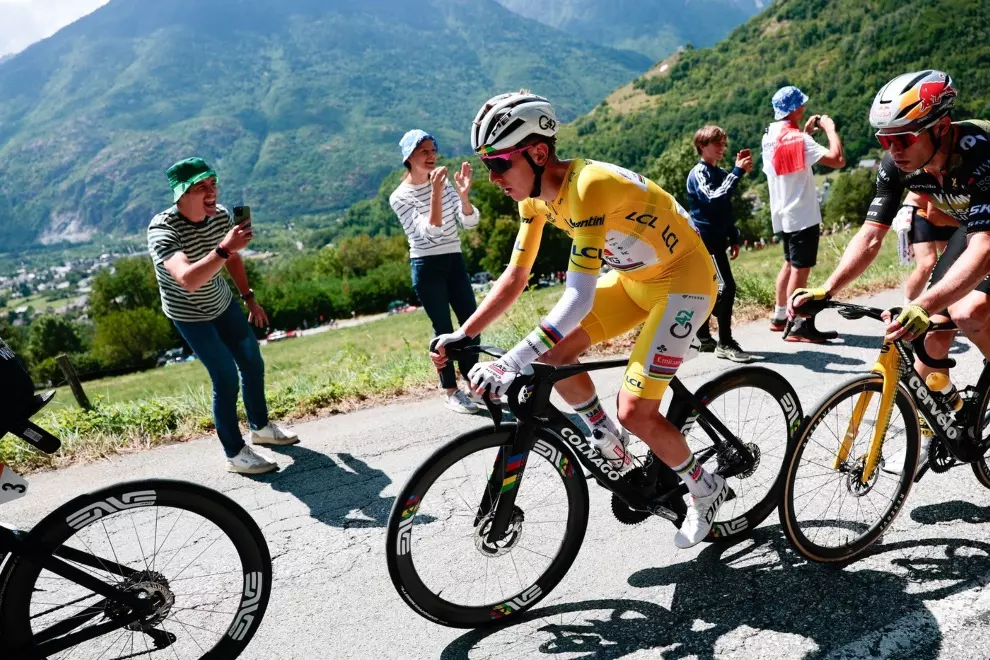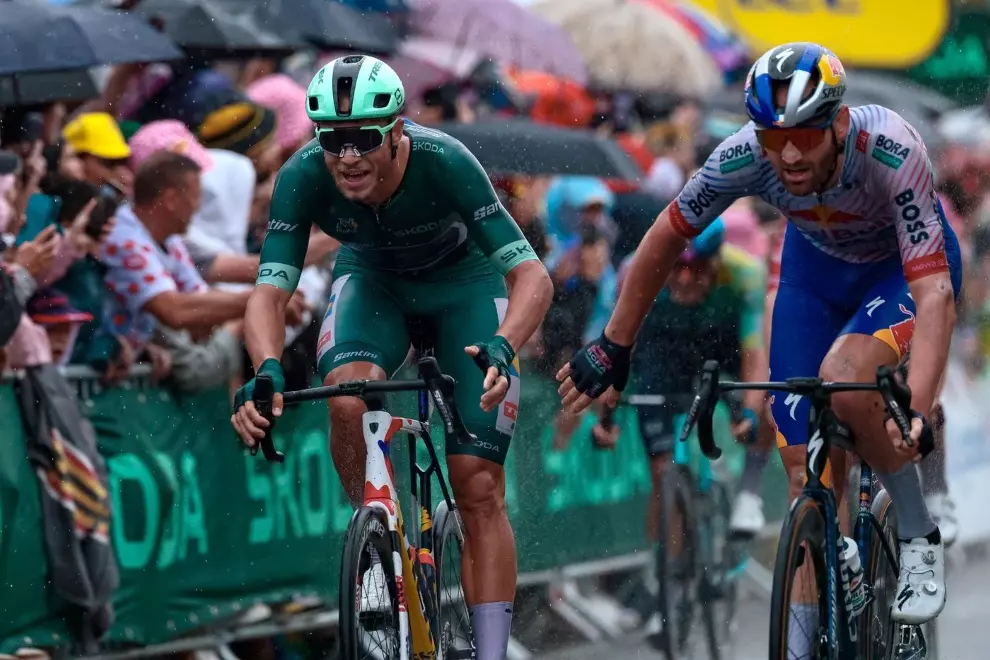Alphonse Steines who was helping Henri Desgrange organize the 1910 Tour got it in his head that crossing the Pyrenees mountains would make the Tour greater than ever. He had to lie and put his own life at risk to make it happen but he did it. This is how it went down:
“I know how to make the Tour even greater,” started Steines.
“Greater? Is it not big enough as it is?” responds Desgrange.
“No. We have to cross all borders.”
“Borders? Don’t you remember that your idea to go to Alsace was a complete disaster? The German government made it clear we can’t do that again. It was a mistake to leave France.”
“I disagree. All of our neighbours want us to visit them. How about Spain?”
“We would have to cross the Pyrenees!”
“Exactly! I think that’s precisely what we should do. Cross the Pyrenees.”
“What? You must be joking! Our cyclists will be eaten by bears. They will get lost. They will die of exhaustion.”

Steines was absolutely serious. He was so persistent that Desgrange finally agreed and they sat down with a map to discuss the route. Steines wanted to start in Perpignan and then go up through four passes: Peyresourde, Aspin, Tourmalet, and Aubisque.
“How can you think this could be a great success? You are planning to send our riders above 2,000 meters high. Are these places even real? There are no roads out there,” counters Desgrange.
“I know it there,” bluffs Steines.
“You will personally cross those passes yourself then!” orders Desgrange.
Steines travels to the Pyrenees at the end of winter and realizes how bad the situation is. There really is no usable road to Aubisque pass. He convinces a local engineer to build a dirt road there and moves on to Tourmalet. It’s completely covered in snow so he decides to return a month before the start of the Tour. He hires a local driver in the town of Pau and sets off for the 19-km-long climb.
“Is there a road all the way up to the pass?” asks Steines.
“A road? No,” disappoints the driver. “But there’s a rocky path for mules,” he adds.

Steines smiles, not knowing what awaits him. Three kilometres before the summit, the car gets stuck in the snow. The driver walks with Steines for another half a kilometre and then says he can’t go any further.
“It’s almost six, the sun is going down and bears come here from Spain when it’s snowy!”
“Wait for me on the other side of the mountain in Bareges then,” replies Steines.
It’s 12 kilometres away but Steines is determined. He keeps walking in snow in his low shoes towards the snowy peak. All of a sudden, he hears the voices of boys that are herding sheep.
He calls out to them: “Do you know Tourmalet well?”
“Yeah”
“Can you guide me?”
They drag themselves for the remaining two kilometres through the snow for 2,5 hours to reach the top. It’s late and very dark. There are no stars and the moon is hiding behind the clouds. The boy who was helping has to return home now and Steines is alone again. He rests on top for a moment but quickly realizes he could freeze to death if he stops moving. He starts the descent but loses his footing on the way and rolls down the hill in the snow. He ends up in a mountain stream. Wet and hypothermic, he finds a side of the road. He’s exhausted and can’t go on. After some time, he hears a voice again.
“Who’s there?” the stranger asks.
Steines stays silent in fear thinking it might be a smuggler that found him. But then gives up thinking it might be his only chance to be saved: “I’m a lost wanderer. I just crossed Tourmalet.”
“Ah, you must be Steines. We were waiting for you. We received a call. Teams of mountain rescuers are looking for you everywhere.”
When Steines gets to safety, he sends a historic and not very truthful telegram to Desgranges: “I just crossed Tourmalet STOP Very good road STOP Totally acceptable STOP.”

A month later, two Pyrenees stages are part of the Tour de France for the first time ever. The second one still remains one of the hardest in history measuring 326 kilometres and crossing Peyresourde, Aspin, Tourmalet, and Aubisque. The winner of that stage, Octave Lapize, had this to say to the organizers when he reached the fourth mountain pass after about 15 hours of cycling:
“Murderers! You all are murderers!” But the mountains didn’t kill him and he managed to win the whole Tour that year. The Pyrenees were a big success like Steines dreamed. It would be hard to imagine the Tour without places like Tourmalet today.




